Resources: Books
From OER in Education
You can download a selection of ORBIT resources, alongside articles on Pedagogy in practice from the OER:Books page and create your very own tailor-made ORBIT book which could be used as a Professional Development (PD) tool to consider various aspects of pedagogy, and engage with PD activities, and practical classroom exemplars of those pedagogies.
In addition, there are a number of full books available in our resources, as below.
Pick your resource by topic:
- [[Topics/Assessment|Assessment]]
- [[Topics/ICT|ICT]]
- [[Topics/Interactive pedagogy|Interactive pedagogy]]
- [[Topics/Science|Science]]
Relevant resources
| Assessment | Using Assessment to Raise Achievement in Maths | |
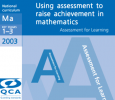
|
Learning goals; self & peer assessment; effecting questioning; marking and case studies This resource explores approaches to assessment(ta) in maths, including the sharing of learning objectives(ta), group work(ta), whole class(ta) assessment, questioning(ta) and more. Four case studies serve as useful discussion prompts to share practice(ta). This .doc version of the QCA's 'Using assessment(ta) to Raise Achievement in Maths' allows schools to select parts of the document that are most relevant to them.
| |
| ICT | IT in Secondary Science | |
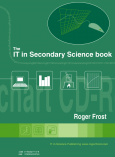
|
A whole book of ideas for using generic ICT tools in science This book provides resources and lesson ideas with ICT(i) as a key focus for use in inquiry(ta) based learning and the scientific method(ta). It offers opportunities for use of group work(ta) and collaboration(ta) as well as whole class(ta) questioning(ta).
| |
| ICT | Infant and Primary Science Activities with Sensors | |

|
A compendium of investigations with sensors in primary science. This is a compendium of activities to engage pupils in inquiry(ta) based learning in the scientific method(ta), often making effective use of ICT(i) and sensors(tool). The activities involve whole class(ta) questioning(ta) and collaborative(ta) group work(ta).
| |
| ICT | Data Logging inservice booklet | |
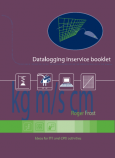
|
A compendium of CPD and ITE activities on why we use sensors and the practicalities of implementing their use Activities and advice for using ICT(i) for use in inquiry(i) based learning and the scientific method(i).
| |
| ICT | Data Logging and Control | |
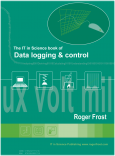
|
A compendium with numerous ideas for using sensors to teach science. This book provides a set of resources and lesson ideas with ICT(i) as a key focus for use in inquiry(ta) based learning and the scientific method(ta). It offers opportunities for use of group work(ta) and collaboration(ta) as well as whole class(ta) questioning(ta).
| |
| ICT | Primary Science Curriculum Activities with Sensors | |
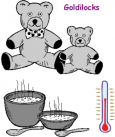
|
A compendium of investigations with sensors in primary science This resource provides a set of activities to engage pupils in inquiry(ta) based learning in the scientific method(ta), often making effective use of ICT(i) and sensors(tool). The activities involve whole class(ta) questioning(ta) and collaborative(ta) group work(ta).
| |
| ICT | IT in Primary Science | |
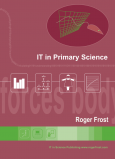
|
A whole book of ideas for using generic ICT tools in science This book is a compendium of lesson ideas with ICT(i) as a key focus for use in inquiry(ta) based learning and the scientific method(ta). It offers opportunities for use of group work(ta) and collaboration(ta) as well as whole class(ta) questioning(ta).
| |
| Interactive pedagogy | The OER4Schools Professional Learning Resource for sub-Saharan Africa | |
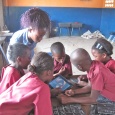
|
Interactive teaching with and without ICT The resource introduces and illustrates interactive teaching – using interactive teaching techniques itself! These include asking users to brainstorm, reflect, collaborate, discuss, make personal sense of new ideas and try out new classroom practices. "Interactive" in this context does not mean technically interactive (in the sense of interacting with a computer), but pedagogically interactive: learners are interacting with each other and the teacher rather than being passive consumers of content.
| |
| Science | Listening to scientists - an environmental scientist talks about heat loss from houses | |
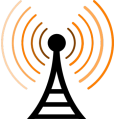
|
How does a house lose heat? What are the ways to stop this loss of heat? This ten-minute recording was made for a local radio show with a strap line that 'science has a use after school'. Audio podcasts, of which this is one, replace easily-missed radio shows and keep us informed. Universities also create podcasts, and just some teachers do too, gaining the unusual advantage that a podcast easily gets into a student's music player.
| |
